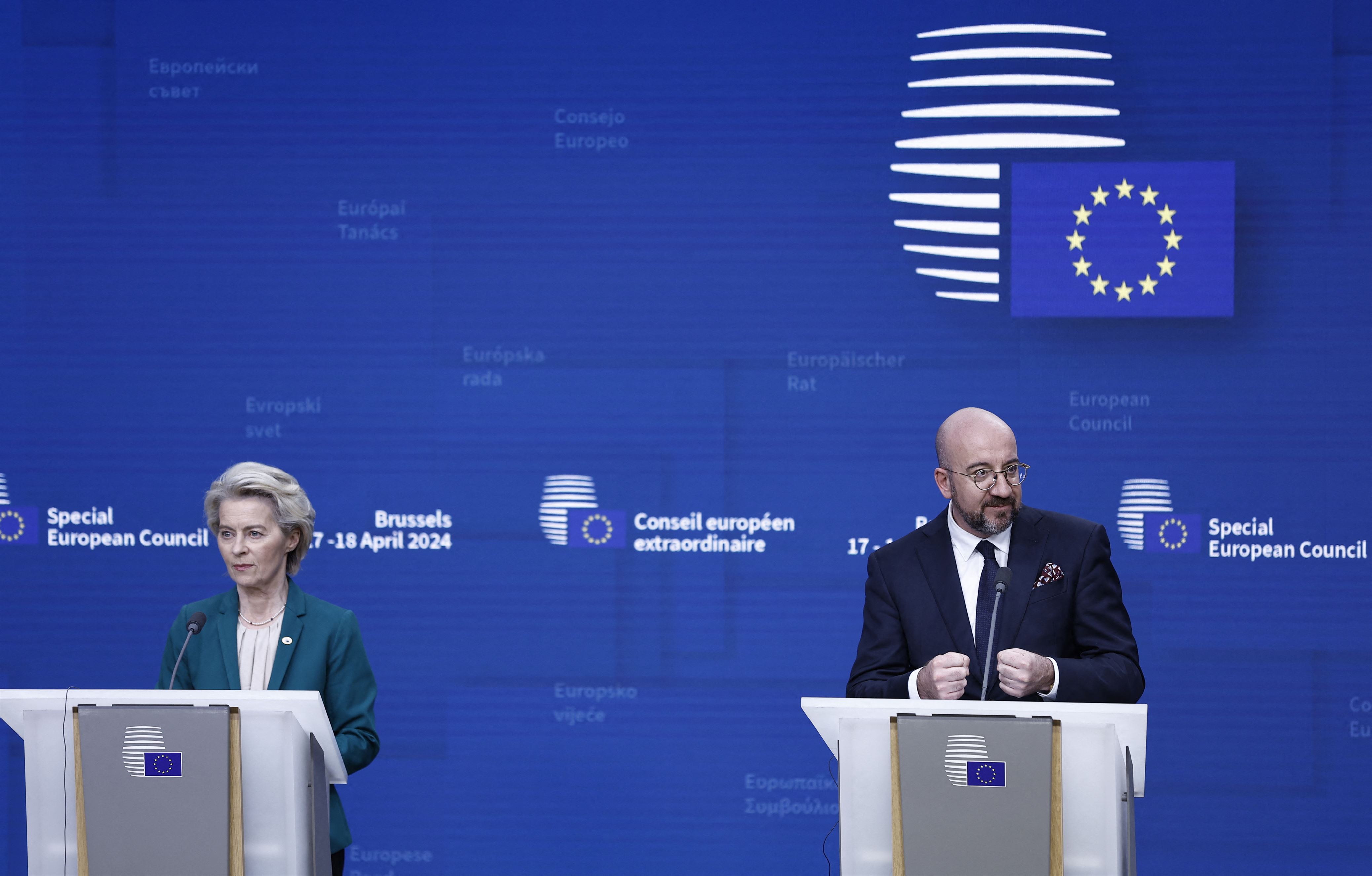
BRUSSELS - The European Council's special two-day summit wrapped up here on Thursday, vowing to enhance the European Union's competitiveness amid the drastic global shifts, and touched upon the situation in Ukraine and the Middle East.
European Council President Charles Michel emphasized the bloc's over-reliance on external economic and security bases, which he argued undermines the EU's competitiveness and global influence.
Affected by factors such as intensified geopolitical tensions, continued monetary tightening, and weak global demand, the European economy continues to be sluggish in 2024, particularly evident in manufacturing and energy-intensive industries.
The summit highlighted nine key areas to drive competitiveness, such as deepening the single market, developing and implementing effective industrial policies, and increasing investments through the Capital Markets Union and the European Investment Bank
Preliminary statistical data released by Eurostat at the end of January showed that the economies of the Eurozone and the EU experienced zero growth in the fourth quarter of last year compared with the previous quarter. The European Trade Union Confederation reported last month that nearly 1 million manufacturing jobs had been lost in the EU over the past four years.
The summit highlighted nine key areas to drive competitiveness, such as deepening the single market, developing and implementing effective industrial policies, and increasing investments through the Capital Markets Union and the European Investment Bank.
EU leaders deliberated on a proposal by former Italian Prime Minister Enrico Letta, who cautioned "no time to waste" and a narrowing window to address the widening economic gap with the United States. Letta's proposal, "Much More Than a Market," points out that geopolitical tensions and rising protectionism threaten the EU's economic security and undermine its development in technological fields such as artificial intelligence and clean technology.
The report outlined the critical need for funding to support the EU's goals in green and digital transitions, EU enlargement and defense enhancements.
Letta pointed to the EU's 33 trillion euros ($35 trillion) in private savings as an underutilized resource, and highlighted that approximately 300 billion euros of EU family savings are redirected abroad each year, predominantly flowing into the American economy and managed by US asset managers.
European Commission President Ursula von der Leyen stressed that the EU could raise an additional round of about 470 billion euros a year in funding from the capital markets if the EU completed the CMU.
European Commission President Ursula von der Leyen stressed that the EU could raise an additional round of about 470 billion euros a year in funding from the capital markets if the EU completed the CMU
Michel also supported leveraging the CMU to channel these funds into European companies, likening the initiative to the United States' Inflation Reduction Act, which allocated nearly $400 billion to subsidize domestic production.
Despite the endorsement of the CMU as it was written in the European Council conclusions document, divisions among EU leaders remain evident. While France and Germany backed the initiative, the majority of the EU's 27 member states expressed reservations about losing national control and expanding EU regulatory powers.
Estonian Prime Minister Kaja Kallas voiced concerns about losing competitive advantages such as their tax system. Meanwhile, Irish Prime Minister Simon Harris emphasized the need for careful implementation of the capital markets union without excessive centralization, particularly opposing the harmonization of corporate taxes.
The summit communique also reiterated EU's support for Ukraine, but analysts believe that the limitations on the bloc's own defense industrial base and production capacity make it difficult to fulfill more of its commitments to Ukraine.
On the Middle East situation, EU leaders urged all parties to exercise the utmost restraint and avoid any actions that could escalate tensions in the region. They agreed to implement more restrictive measures against Iran, specifically targeting unmanned aerial vehicles and missiles.


